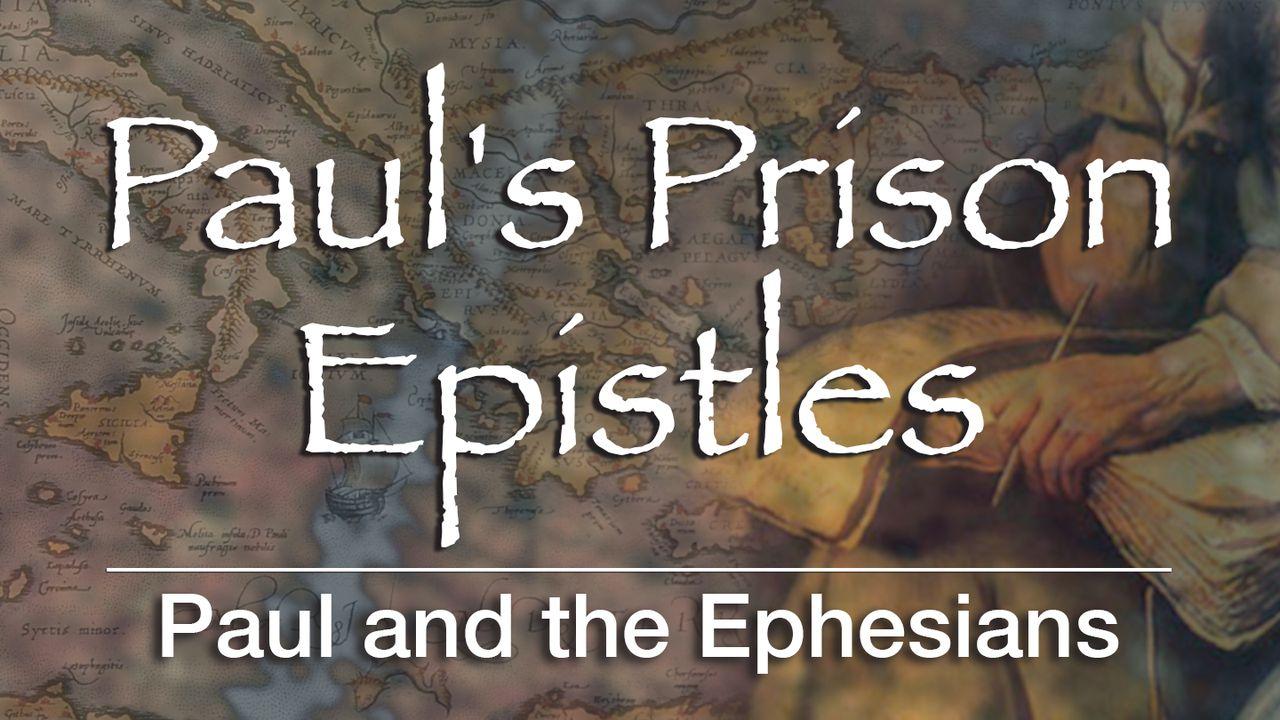Paul's Prison Epistles: Paul and the Ephesians预览

Ephesians Challenges: Ephesians 2:11-13
Paul mentioned many challenges that faced the churches in Ephesus and the Lycus Valley, but for the sake of time we will mention just three: the “old self” or sinful nature that fights against the “new self” within every believer encouraging us to sin; the racial tensions between the Jewish and Gentile Christians; and demonic forces.
First, when Paul wrote about our sinful nature and sinful habits, he appealed to kingdom language, teaching that sin must not characterize the citizens of God’s kingdom.
For example, in Ephesians 5:5, Paul wrote these words:
No immoral, impure or greedy person … has any inheritance in the kingdom of Christ and of God (Ephesians 5:5).
Citizens in God’s kingdom may either obey or disobey Christ. If they obey, being faithful to their king, they inherit the blessings of the covenant including things like forgiveness of sins, and eternal life. But if a citizen rejects Christ, rebelling against the king and the salvation he offers, that person has no inheritance in Christ’s kingdom.
Second, Paul used the imagery of the kingdom of God to address the matter of racial or ethnic tension between Jews and Gentiles in the church. Consider his words in Ephesians 2:11-13:
Formerly you who are Gentiles by birth and called "uncircumcised" by those who call themselves "the circumcision" … were separate from Christ, excluded from citizenship in Israel and foreigners to the covenants of the promise … But now in Christ Jesus you … have been brought near (Ephesians 2:11-13).
Here, Paul contrasted the condition of his “uncircumcised” Gentile readers before they came to faith in Christ with their condition after they came to faith. Before they came to faith, they were foreigners rather than citizens of Israel, God’s kingdom on earth. But once the Gentiles came to faith, they became full citizens of the kingdom.
Paul also said that when the Gentiles used to be excluded from the covenants of promise. The Old Testament covenants were national, theocratic treaties between God and Israel. They were the legal arrangements by which God administered his kingdom on earth. Once the Gentiles were grafted into God’s kingdom by Christ, they came under the authority of these national covenants. And as a result, they were entitled to the covenant blessings.
Paul’s discussion of the church in terms of citizenship and covenants indicated that Paul was speaking of the church as God’s kingdom. In short, Paul taught that Jews and Gentiles are reconciled to one another partly because they are now citizens in the same kingdom.
Finally, Paul used kingdom language to address the matter of the demonic forces that challenged the church.
The churches in the Lycus Valley were troubled by false teachers. These false teachers borrowed from Greek religion and mistaken understandings of Jewish law in order to persuade Christians to worship various spiritual powers including demons as well as the basic elements of the universe: earth, air, water and fire. Paul characterized these demons and basic elements in a number of ways that related to his theology of the kingdom of God. But his most explicit statement to this effect appears in Ephesians 2:1-2.
You were dead in your transgressions and sins, in which you used to live when you followed the ways of this world and of the ruler of the kingdom of the air, the spirit who is now at work in those who are disobedient (Ephesians 2:1-2).
Paul said that the demons have their own kingdom, which he called the kingdom of the air. This kingdom has a ruler, or king, who governs it. As we know from the rest of Scripture, that evil spirit is Satan.
读经计划介绍

This plan examines how Paul designed Ephesians to teach Christians how to build, maintain and thrive in God's kingdom.
More




